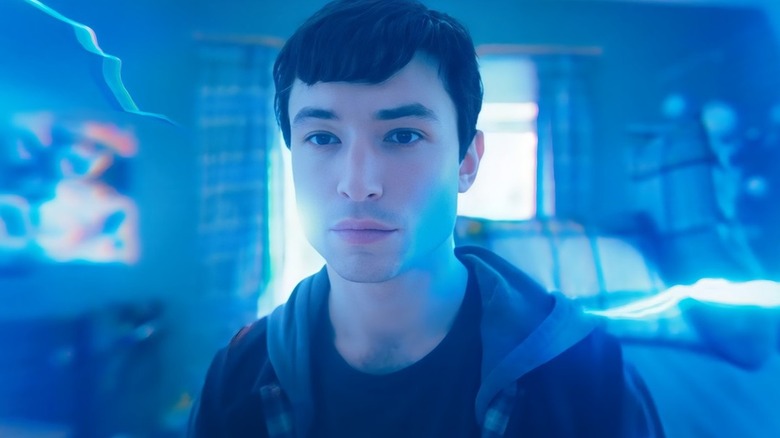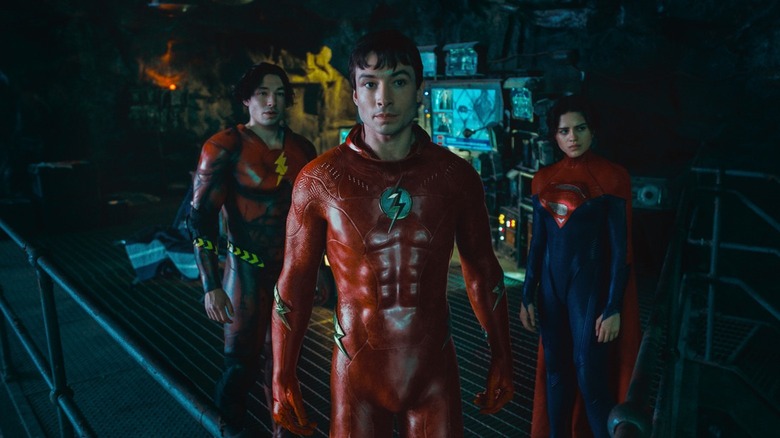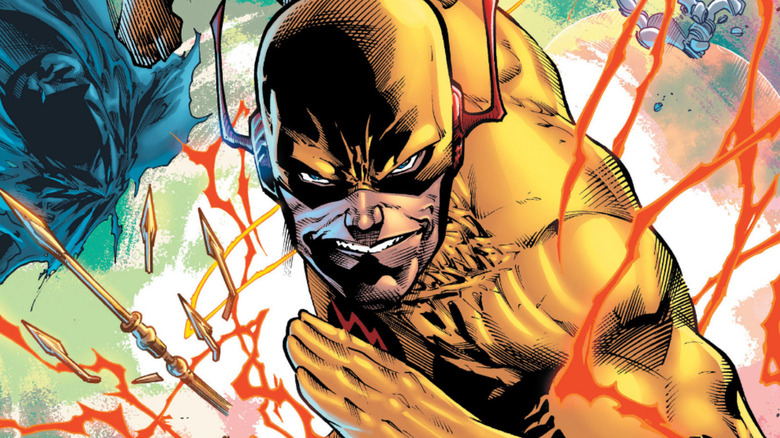The Flash's Most Annoying Time Travel Plot Hole Explained
Warning: This post contains spoilers for "The Flash."
Barry Allen (Ezra Miller), grief-stricken as he is, would've been much better off had he just stayed out of time. Instead, as "The Flash" reveals, it leads to a whole mess of trouble: the death of a Batman and leaving a world to crumble under an alien invasion. We get it.
To stop his mother's death, Barry throws a can of tomatoes in the mix that sends a tidal wave across time — only for him to put it back to set things right. Still, it leads to the one death in his family that he was trying to avoid. For some reason, Barry can't help himself. Another alternative action in the finale leads to his father's pardon — which is good — but it also changes the Bruce Wayne he knew (Ben Affleck) into one that loves sticking nipples on his bat suit (George Clooney) (which is bad).
Yes, it's baffling. After spending a whole film learning the hard way changing something could — to quote Ben Affleck's Bruce Wayne — "destroy everything," he played with time again. Why? Why resort to supermarket shelf stacking to prove his father's innocence instead of just being there to be an eyewitness to the death of his mother? Well, doing so would lead the entire film to collapse in on itself and potentially nix revisiting this storyline further down the line.
What does this mean for a Flash sequel?
Just like entering another dimension, timeline, or art gallery, not touching a thing within arm's reach is the best course of action. But had Barry simply gone back to the moment of his mother's murder to see it — instead of changing can formations — he'd be safe from doing all of that. He wouldn't have to touch anything, and given that his younger self was upstairs at the time of the accident, he'd run no risk of bumping into himself either. So why avoid such an obvious choice? Particularly one that is one of the core story elements of the DC event it's pulling from?
This is precisely what happens in DC Comics' "Flashpoint" event, which "The Flash" movie adapts. Barry runs back in time to see his mother's murderer, coming face to face with her killer. Additionally, it's a story beat included in The CW's TV adaptation of "The Flash." In the series, the speedster had to stand by and watch her death — after learning to get involved could cause problems in the future. So, why was it ignored here? Well, the obvious answer is that it may be trying to do something new to a story that's already been told in another iteration of Barry's adventures (and brilliantly so, too). The most frustrating alternative is that it's a plot point to be saved for a potential sequel that would return to the crime scene when it shouldn't.
Does The Flash ignore the obvious in order to reverse over it later?
Flash fact! The culprit behind the death of Barry's mother is actually Eobard Thawne, aka The Reverse Flash. Born in the 25th Century, Thawne traveled back in time to kill Barry's mother, a key moment in time that, without its occurrence, would've stopped Allen from getting his powers and wiping Thawne from existence. To skim over such a crucial point in Flash's history seemed strange while also leaving a massive plot hole in The Flash's film. Is the only explanation for taking such a risk really that it's waiting for a sequel to be greenlit?
In October 2022, it was confirmed that there's a completed script for "The Flash 2" – assuring that plans were in place for Barry Allen days before the announcement of James Gunn co-managing the future of DC projects with Peter Safran. Including Reverse Flash here seems like an obvious addition. He's the Joker to Allen's Batman, but to include his story would be to pick at the bones of an already harvested "Flashpoint." Would it be worth the revisit? As crucial as Thawne's actions are, seeing Nora Allen's (Maribel Verdú) death would feel as welcome as the death of Uncle Ben or Thomas and Martha Wayne. Of course, this is all in theory, but like Barry's all-new trip through time, missing out on this major detail has caused more problems than it solved.


